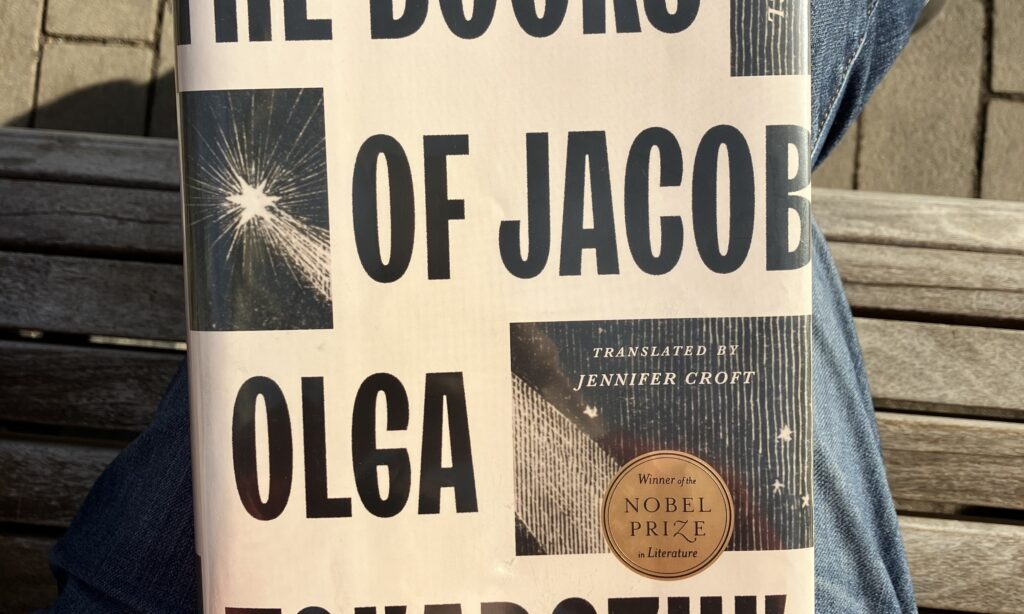Having spent several months making my way through Olga Tokarczuk’s The Books of Jacob, (translated by Jennifer Croft), I still have a hard time formulating my reaction to this giant tome. It’s an absorbing and fascinating novel – a deeply (truly, astoundingly, deeply) researched historical fiction about the life of Jacob Frank, who proclaimed himself to be the Jewish messiah in mid-18th century Poland and then formed a decades-long-lasting cult. There are dozens of characters, most of them thoughtful imaginings of real historical figures, who narrate their inner lives and perspectives.
Tokarczuk (who won the 2018 Nobel Prize, primarily on the strength of this work) explores a space and time almost exclusively liminal. The novel’s moral and ethical world is poised between the all-enveloping religious faith of the early modern period and the scientific rationalism of the Enlightenment. Characters are caught on a piece of as-yet-unconquered land bordered by the Hapsburg, Ottoman, and Russian Empires, all eager to get their oar in politically and economically. We watch a group of cultish sectarians befuddle the surrounding Jewish, Catholic, Orthodox Christian, and Muslim authorities, who cannot decide whether Frank’s conversion to Islam and then Catholicism, but simultaneous adherence to a religion of his own making, means that his followers are still Jews. This weighty decision comes with not just spiritual, but also geopolitical ramifications. If they are still Jewish, then they would be subject to the discriminatory and oppressive laws that prevent them from, among other things, owning land. If—as the authorities eventually rule—they are no longer Jews, then they can be granted not only land, but also titles.
This multitude of voices, languages, registers (ranging from, say, the mystical ramblings of a Frank devotee deciphering the Kabbalah to the pragmatic wheedling of a bishop with a gambling addiction and potentially embarrassing debts that are best covered up with a pogrom or two) make the novel almost cacophonous. At the risk of being too pretentious, I’m going to put on my grad student hat for a second and say that for the first time in some fifteen years, I can find no better description of this novel than critical theorist Mikhail Bakhtin’s idea of “polyphony.”
What does it say about the plentitude of everything to be found in The Books of Jacob that my favorite two characters are tertiary at best yet still integral to the plot? They are also excellent bookends: one a product of superstition and folklore and the other steeped in modernity, a duality that I often find in my own sense of my Jewishness. There’s Yente, a very old woman who swallows a magical talisman that allows her to live forever as a kind of secondary narrator, one who eventually sees the fate of the Frank mishpocha centuries after the events of the novel take place, and who also even gets a peek at the face of the novel’s god – i.e. Tokarczuk herself. Yente’s free-floating magical realist existence is a sharp contrast to the other character I liked: the physician and lens maker Asher, who firmly embraces the scientific process, delighting over the newest discoveries coming from some English upstart named Newton. That these characters, both only tangentially related to Frank, still have prominence in the novel shows its all-encompassment.
I’m very glad that I read it. Its consuming and slightly unhinged quality will stay with me for a long time.

